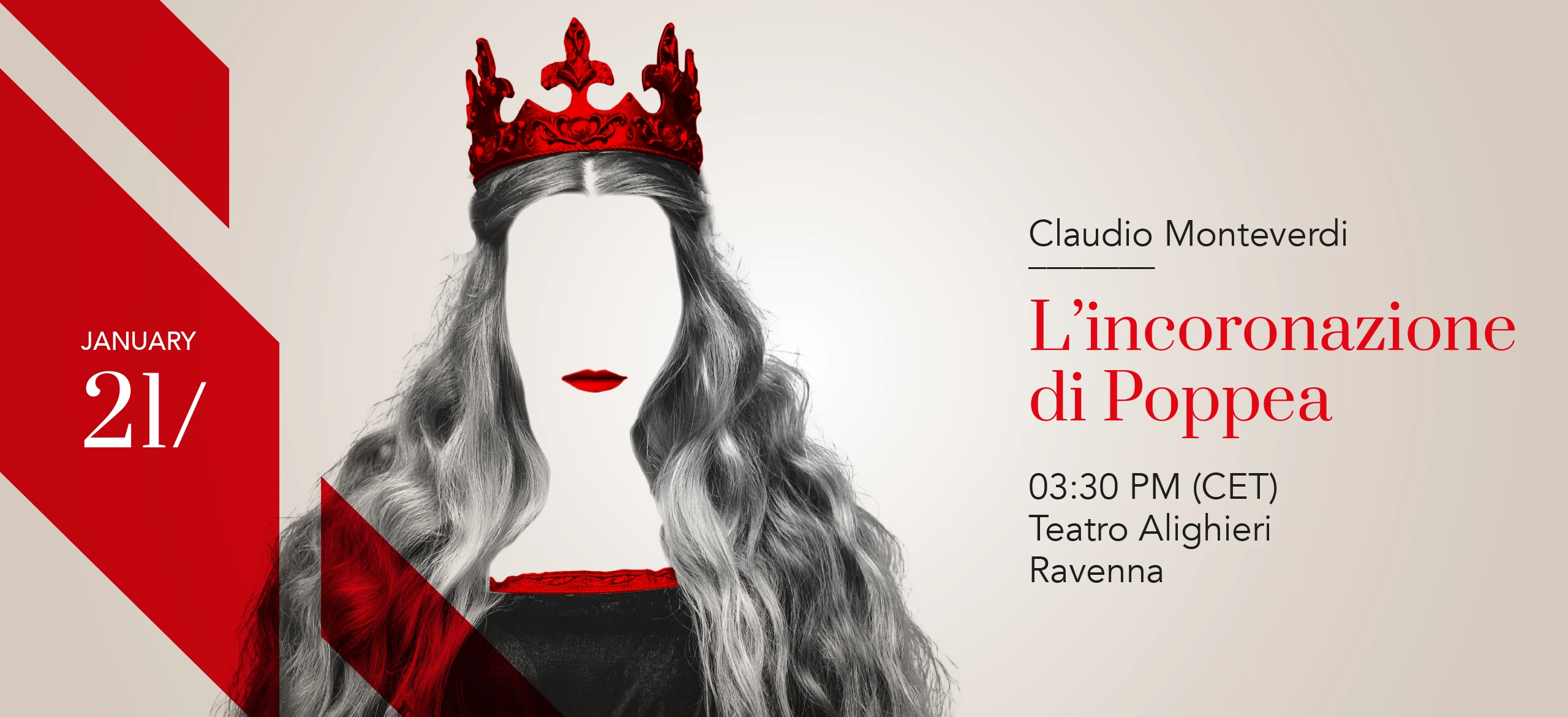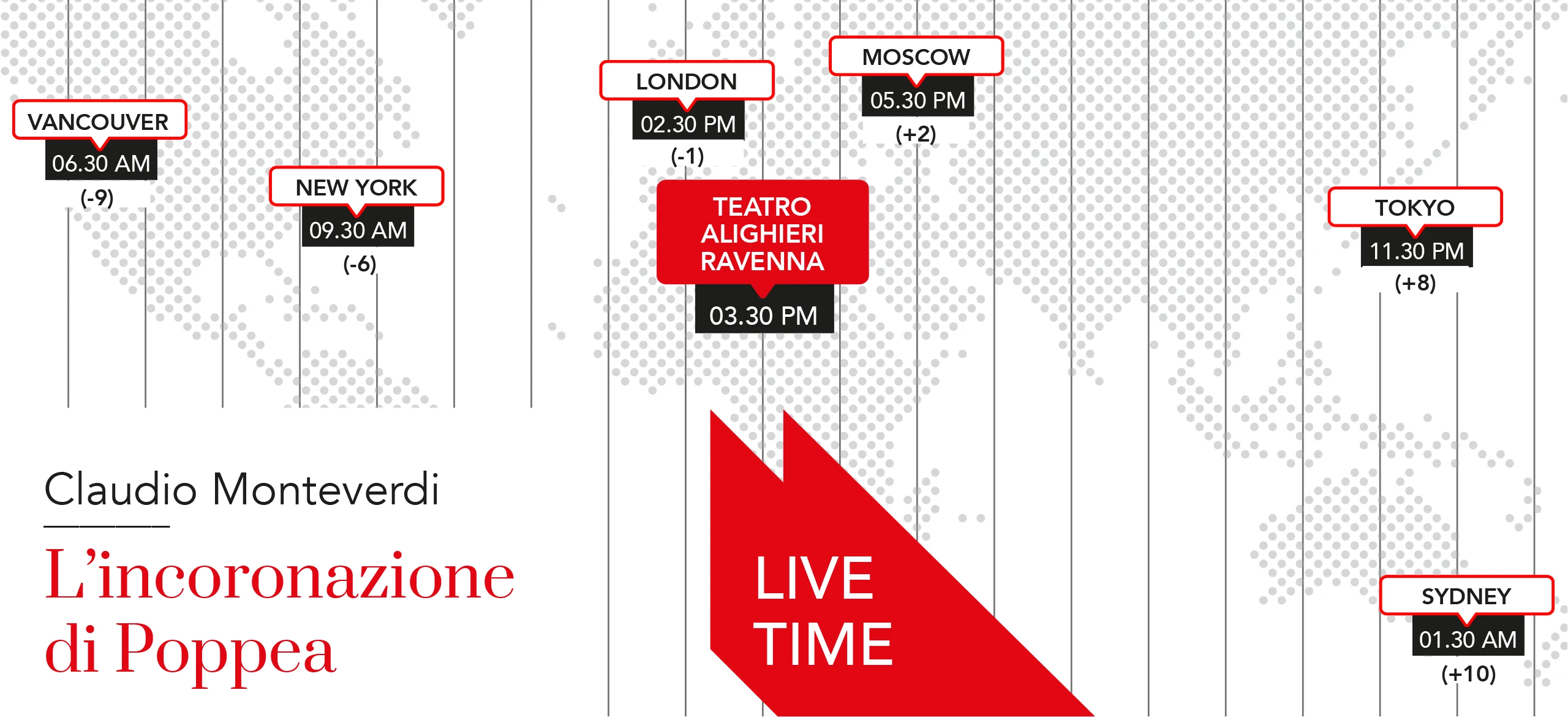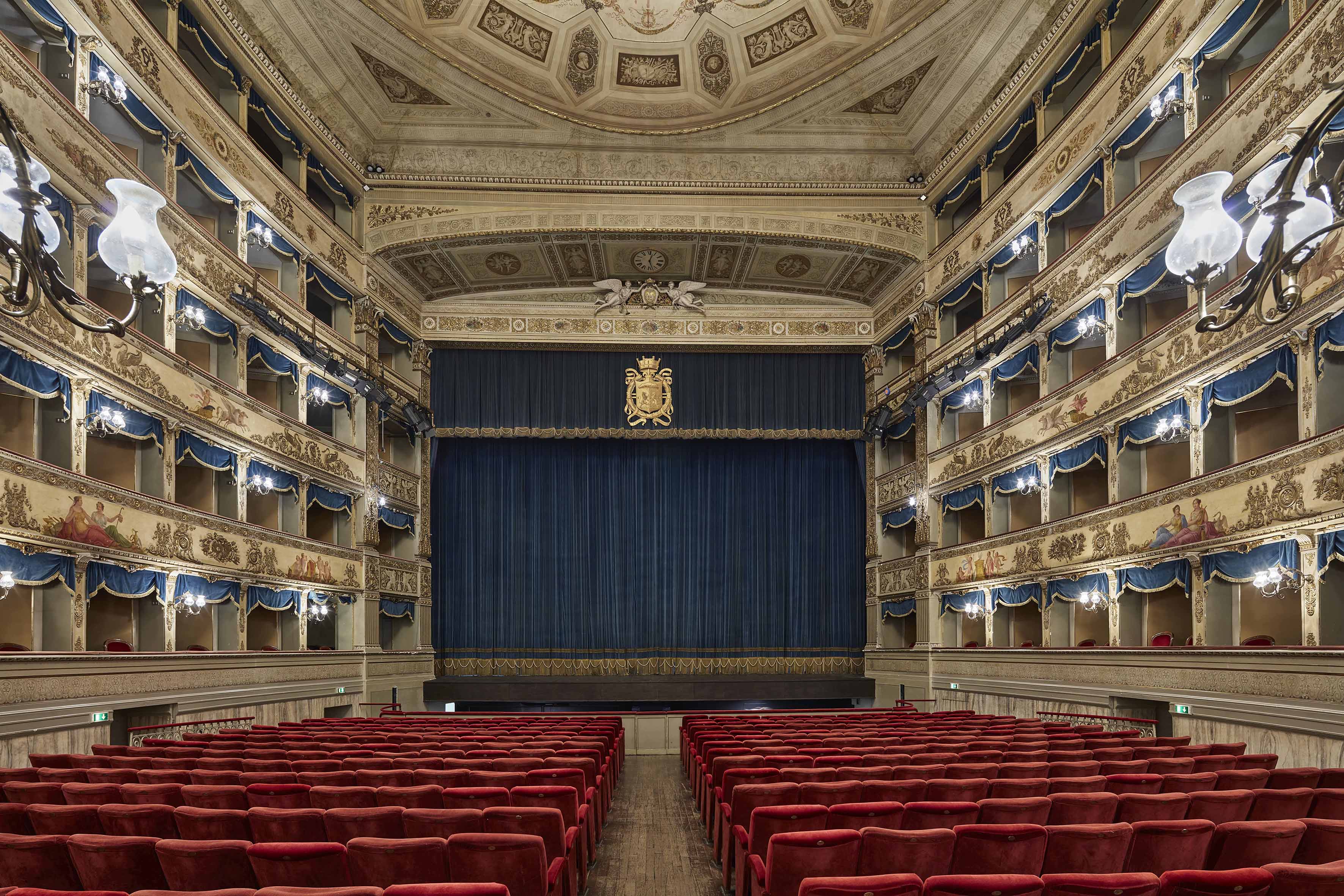

THE STREAMING WILL BE AVAILABLE UNTIL
21 July 2024
dramma per musica in a prologue and three acts
poetry by Giovanni Francesco Busenello
music by Claudio Monteverdi
(first performance Teatro Santi Giovanni e Paolo in Venice, 1643)
Poppea Roberta Mameli
Nerone Federico Fiorio
Ottavia Josè Maria Lo Monaco
Ottone Enrico Torre
Seneca Federico Domenico Eraldo Sacchi
Arnalta Candida Guida
Drusilla Chiara Nicastro
Lucano/1st soldier/2nd family member Luigi Morassi
Liberto/2nd soldier/consul Luca Cervoni
Mercurio/3rd family member/tribune/litre Mauro Borgioni
Nurse/1st family member Danilo Pastore
Venus/Fortuna Francesca Boncompagni
Love/Vallet Paola Valentina Molinari
Virtue/Damsel/Pallade Giorgia Sorichetti
maestro concertatore and conductor Antonio Greco
director, sets, costumes and lighting Pier Luigi Pizzi
assistant director and stage director Lorenzo Mazzoletti
assistant costumes Lorena Marin
assistant light designer Oscar Frosio
Orchestra Monteverdi Festival – Cremona Antiqua
new production by the Fondazione Teatro Amilcare Ponchielli in Cremona
in co-production with OperaLombardia, Teatro Verdi di Pisa, Teatro Alighieri di Ravenna
“I designed a metaphysical scene rooted in Sebastiano Serlio’s classic scene of Renaissance theatre, an emblematic square onto which two worlds face each other,” explains director Pier Luigi Pizzi, describing what “Il Sole 24 Ore” described as the best opera production of 2023. A production that arrives in Ravenna after its summer debut for the Monteverdi Festival in the Ponchielli Theatre in Cremona, the leader of the co-production that alongside the Alighieri includes OperaLombardia and the Verdi Theatre in Pisa. “In the centre there is a tree,” Pizzi continues, “a tree with golden branches that look towards Poppea’s dwelling because they have received a lucky wind, on the other side the dry branches that tell us of Ottavia’s loneliness. Then there is a golden globe, which is the place over which Love exercises its power. (…) Busenello’s is one of the most beautiful opera librettos there is: it speaks to us in a direct way, with a language of such a level that it reaches everyone and gives us the possibility of easily recognising ourselves in the characters of this opera’.
First performed in Venice in 1643 and the first opera with a historical subject (the librettist Giovanni Francesco Busenello was inspired by Tacitus’ Annals), L’incoronazione di Poppea has come down to us in two manuscripts whose differences reveal manipulations and rewritings – presumably, the old maestro availed himself of the contribution of his pupils to stage his last great masterpiece. “The genesis of this opera is therefore a Homeric question, where many are the doubts and few the certainties – underlines Antonio Greco, maestro concertatore and conductor – We have chosen to stage the more agile Venetian manuscript found in 1888, but inserting the ‘Neapolitan’ instrumental refrains from the manuscript rediscovered in 1929. Dramaturgically, nothing changes: the moments in which the instrumental refrains appear are almost totally superimposable and the basso continuo lines are almost always identical. But while the Venetian instrumental is three-part, the Neapolitan is four-part. I took the liberty of adding a fifth part, to adapt the score to our orchestra and our theatre’.
IL TAMERLANO – Extra
LIVE FROM

TEATRO ALIGHIERI DI RAVENNA
Early nineteenth century: after more than one hundred years of life the Communicative Theatre, made entirely out of wood, was collapsing and the Public Administration decided to build a new facility. The first step was to identify an adequate area: Piazzetta Degli Svizzeri, a squalid square surrounded by slums but placed at the very heart of the city, was the chosen place. In 1838, the project was entrusted to two architects from Veneto, the brothers Tomaso and Giovan Batista Maduna. The former had ministered to the restauration of La Fenice, the most famous theatre in Venice, which had been partially destroyed by a fire. Tomaso Meduna also signed the project of the first railway bridge connecting Venice to the mainland. Under the lead of the two architects, the building which resulted was a neoclassical structure very similar to the Venetian theatre. The apostolic delegate Monsignor Stefano Rossi suggested to dedicate the theatre to Dante Alighieri.

Media partner

OperaStreaming
Project coordinator
Fondazione Teatro Comunale di Modena
Via del Teatro 8 - 41121 Modena
P.IVA e CF 02757090366
info@teatrocomunalemodena.it
Tel. 059 - 2033020


